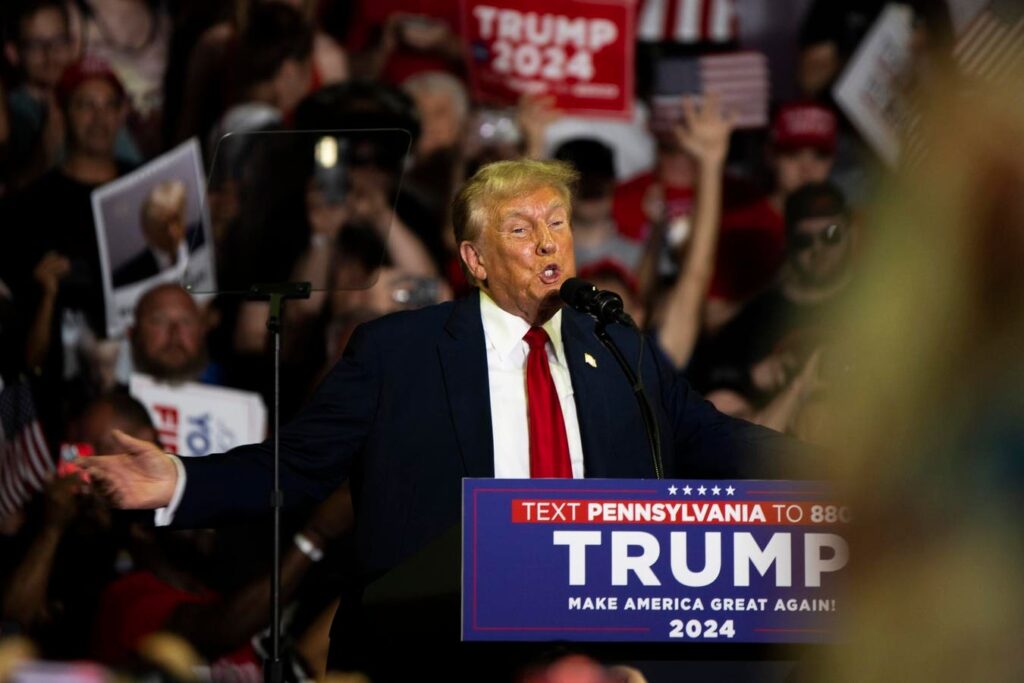In a June speech in Philadelphia, Donald Trump said the city was “ravaged by bloodshed and crime.” … [+] (Photo by Joe Lamberti for The Washington Post via Getty Images)
The Washington Post via Getty Images
As the reality of Donald Trump’s re-election with Republican control of both houses of Congress settles in, America’s cities are bracing for a rough ride. Trump’s rhetoric is starkly anti-city, and the policies he’s envisioning will make these next four years very challenging for urban America.
Trump always has attacked cities as crime-ridden “hellholes,” flooded by nonauthorized immigrants and misgoverned by Democrats. In his first term, he tried to withhold federal funds from cities that wouldn’t cooperate with his anti-immigrant policies—so-called “sanctuary cities.” But his efforts were significantly limited by the federal courts.
In 2024, Trump returned to attacking cities. He said Philadelphia was “ravaged by bloodshed and crime,” and called Detroit a Third World “developing area…a hell of a lot (worse) than most places in China.” He even attacked Milwaukee, the site of the Republican national convention, as “horrible.”
With Trump and Republicans firmly in control of the federal government, expect lots of anti-city policies and legislation. New York City Comptroller Brad Lander recently issued a report on the threats Trump poses to the city’s economy, and his warnings could be applied to virtually every city in the country.
The first threat from Trump comes from his proposed economic policies, both high tariffs and deportation of unauthorized immigrants. These will hit the entire economy, but could be especially disruptive to cities.
If Trump fully applies his draconian tariffs, almost all economists believe they will cause both inflation and slower growth. And since cities are the drivers of the American economy, they will feel this particularly hard.
Politically, Trump and the Republicans may not care. In his three elections, Trump has carried counties that together make up less than half of America’s total GDP—36% in 2016, 29% in 2020, and 40% in 2024.
The second big threat to cities comes from Trump’s tax and budget proposals. He wants to renew the large, regressive tax cuts enacted in his first term, and deepen several of them, including a lower corporate tax rate.
The Committee for a Responsible Federal Budget has estimated Trump’s overall budget proposals could increase the federal deficit by as much as $15.5 trillion—that’s trillion—over ten years. With the deficit already representing 6.3% of total GDP in 2023, that’s a recipe for much more debt, which means higher interest rates that can slow the economy.
Of course, Republicans will seek spending cuts to offset some of this increased deficit. But they also want to increase defense spending significantly. Senator Roger Wicker (R-MS), the incoming chair of the Senate Armed Service Committee, has proposed legislation to increase defense spending to 5% of GDP, up from 2.7% in 2024. That would be a massive spending increase on top of the proposed tax cuts.
So if tax cuts and defense spending cost much more, where will cuts come from? The answer: domestic spending. Infrastructure, transportation, education, job training, food and income assistance, health care, and environmental protection all face cuts.
Republicans hope to massively cut food stamps and federal health care spending, especially Medicare, which provides health care to low-income people. The Center on Budget and Policy Priorities (CBPP) noted recent Republican calls for cutting health care up to $4.5 trillion over ten years would “result in millions losing access to comprehensive coverage.” That in turn will make people less healthy.
Cities also will be harmed by Republican efforts to convert direct grants to cities into block grants administered by states. CBPP says block grants, which are fixed dollar amounts, prevent responding to economic downturns, force states to cover disaster and other spending in tough times, and allow states to shift money away from the neediest people and jurisdictions.
New York City Comptroller Lander’s report details the potential negative impacts of these and other Republican budget policies. New York’s current budget “includes $7.92 billion in federal grants, approximately 7% of the total budget.”
That spending is especially important in education, health care, housing and homeless services, and mass transit. Cuts in the federal share will mean the city either has to raise taxes, or cut vital spending from elsewhere in the budget.
Cities also will be hard hit, and disrupted, if Trump’s inhumane policy of mass arrests and deportations is carried out. Many unauthorized immigrants live and work in cities, and the specter of the US military coming into cities for deportations will cause a great deal of conflict. Several key economic sectors, including health care, food and hospitality, and construction could also be hurt.
So cities face a very tough time under Trump. Trump is promising a potentially weaker economy, with tariffs causing both inflation and slower growth; tax cuts that further reward the wealthiest Americans and drive up budget deficits, putting pressure on non-defense spending; and a threat to withhold federal funds unless cities cooperate with mass deportations and other draconian policies.
Damaging America’s cities will especially hurt poor people, but not only them. Because cities are the drivers of economic growth, Trump’s attacks on them could well hurt America’s economic future. That would be bad not just for cities, but for everyone.
Source link : http://www.bing.com/news/apiclick.aspx?ref=FexRss&aid=&tid=67446999deba4f23a98b310e347f89fa&url=https%3A%2F%2Fwww.forbes.com%2Fsites%2Frichardmcgahey%2F2024%2F11%2F25%2Ftrumps-policies-will-be-bad-news-for-americas-cities%2F&c=16929724527690909515&mkt=en-us
Author :
Publish date : 2024-11-24 22:34:00
Copyright for syndicated content belongs to the linked Source.
